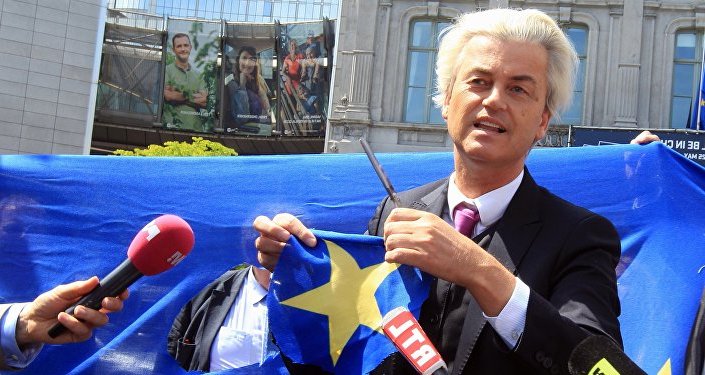
Polish voters have voted for sweeping change with Law and Justice winning today’s elections by a wide margin. Open Europe’s Pawel Swidlicki looks at what comes next for Poland and the EU, and also what it could mean for Cameron’s EU renegotiation.
Collapse of the left hands Law and Justice a historic win
Law and Justice and its allies (PiS) have won the Polish elections, with an exit poll putting the party on 39.1% ahead of the governing Civic Platform (PO) on 23.4%, the nationalist-populist Kukiz Movement on 9%, the economically liberal Nowoczesna on 7.1%, the United Left on 6.6%, the agrarian Polish Peasant’s Party (PSL) on 5.2%, the libertarian-populist KORWiN party on 4.9% and the SYRIZA/Podemos inspired Partia Razem on 3.9%.
If confirmed (and previous Polish exit polls have not always proved reliable) such a vote distribution would put five parties over the 5% threshold necessary to win seats in the Sejm, with KORWiN falling just short. As a coalition, the United Left needs to get over 8%, and it looks almost certain to have fallen short, as does Partia Razem.
The official results will be published on Tuesday, however, they would have to diverge significantly from the above projection to deprive Law and Justice of an overall majority – the first time a party has managed this feat in post-Communist times. Although undoubtedly an impressive achievement, PiS’ victory owes much to the collapse of the United Left – ironically it appears that this was caused by a late surge by Partia Razem which has left the self-defined Left in Poland without any parliamentary representation.
PiS tapped into anti-establishment forces which could rebound on the party
Having won a strong mandate, PiS is undoubtedly in a strong position but it inherits a relatively strong economy with historically low unemployment. Given many Poles are nonetheless still not satisfied with their living standards with many moving abroad (a big theme in the election campaign), the party will be judged against its expensive election promises and rhetoric, and it will have few excuses if it fails to improve the situation.
Anti-establishment, anti-politician sentiment played a central role in the campaign and PiS was successfully able to tap into this, but it could also fall afoul of the same forces in the future. In addition, there will be a lot of scrutiny on the party’s controversial leader Jarosław Kaczyński who many think will really be running the country as opposed to the party’s candidate for Prime Minister Beata Szydło (it was notable that Kaczyński rather than Szydło began the party’s victory address).
Meanwhile, there will be a lot of soul searching within PO – the party was formed to govern as opposed to pursuing a strong ideological agenda, and it remains to be seen how it will cope in opposition. The party will now need to hold a leadership campaign which could be very acrimonious. There will also be recriminations and infighting on the left while the Kukiz Movement will be a volatile populist presence in parliament. In short, Polish politics is going to get more messy and it remains to be seen where the most effective opposition to Law and Justice will come from.
Have Polish voters ‘turned away from Europe?’
Expect a lot of lazy analysis in subsequent days especially from international commentators about how Poles have turned ‘away from Europe’. It is true that the makeup of the new parliament will be more sceptical while the most vocally pro-EU parties did poorly, but this is a superficial analysis. For starters, of all the parties, only KORWiN was explicitly anti-EU and it may well fail to obtain any seats, and poll after poll shows that Poles back EU membership by a wide margin – a GfK Polonia poll last month found that 84% of Poles did so compared to only 12% who were opposed.
That said, the result clearly highlights that Poles oppose deeper EU integration in a number of crucial areas. In terms of immediate flashpoints, the refugee crisis was the defining issue of the last couple of months and most of the opposition parties strongly opposed the PO government’s decision to participate in the EU-wide refugee relocation programme. The debate about the refugee crisis certainly triggered a nationalist reflex and EU member states’ decision to force through the relocation of 160,000 refugeeslast month could have profound and long-lasting implications for Poles’ attitudes towards the EU.
It remains to be seen if PiS will accept the 7,000 or so refugees Poland is due to receive via the relocation scheme and what will happen if the EU pushes for a second mass relocation and/or a permanent binding mechanism. For the time being however opposition to taking in refugees has not led to a noticeable decrease in EU membership.
A more distant but no less fundamental issue is that of Poland’s euro membership. Although this question would have been kicked into the long grass even under a PO-led government, PiS has gone even further by arguing that Poland should only join the single currency when living standards have caught up with those in the West. Given that GDP per capita in Poland is 68% of the EU average– compared to 107% for the Eurozone as a whole – this could well be a matter of decades. The party has also pledged that if it forms the next government it will abolish the office charged with preparing the ground for euro membership – a largely symbolic move. Either way, Poland’s absence from the Eurozone at a time when it could be set to integrate deeper will have consequences for the country’s place within the EU.
Headaches in Berlin and Brussels but (moderately) good news for Cameron
For the reasons outlined above, Brussels and Berlin are unlikely to be celebrating tonight’s result. A more assertive Poland, also in other areas such as energy and climate policy is by no means an existential problem, although it comes at at a time when the EU is struggling with a myriad of challenges. However, the party appears to have learned from its previous experience in government (2005-07) during which Polish diplomacy was seen as overly prickly and ineffectual – the PiS affiliated President Andrzej Duda embarked on a bridge-building tour over the summer which included a visit to Berlin during which he praised the state of Polish-German relations.
Conversely, the result is good news for David Cameron. Not only are the two parties allies in the European Parliament, but PiS’ victory and the wider result strengthen his narrative about an EU that has overreached itself and which needs reforms to become more accountable to its citizens and less dismissive of their concerns. More specifically, the two parties share a desire to see national sovereignty reasserted as opposed to ever deeper political integration, and PiS could therefore be a strong ally for Cameron in his bid to achieve a more flexible EU in which not every member state has to pursue the objective of ‘ever closer union’. PiS will also likely support Cameron’s moves to secure safeguards for non-euro member states and boost the involvement of national parliaments in EU decision making.
However, the positive news for Cameron should not be overstated – the parties do not see eye-to-eye in every EU policy area. For example, PiS’ support for the UK’s competitiveness agenda of cutting EU red tape, expanding the single market and striking FTAs with other global economies is unlikely to be unambiguous – the party’s economic policies are more protectionist and interventionist than the Tories’. Most fundamentally, the two will continue to clash over the issue of EU migrants’ access to benefits, and PiS will want to avoid the perception that it has ‘sold out’ the migrant voters it has spent the last few years championing.
That said, now that the elections are out of the way, PiS could adopt a more pragmatic stance, not least since as a result of the refugee crisis Poland has experienced its own heated debate about migration which at the very least should lead to a greater understanding of the UK position. Given how central this issue is to the credibility of the renegotiation and the generally good relations between the two parties it is not inconceivable there could be some room for compromise.
- This article appeared first on Open Europe



